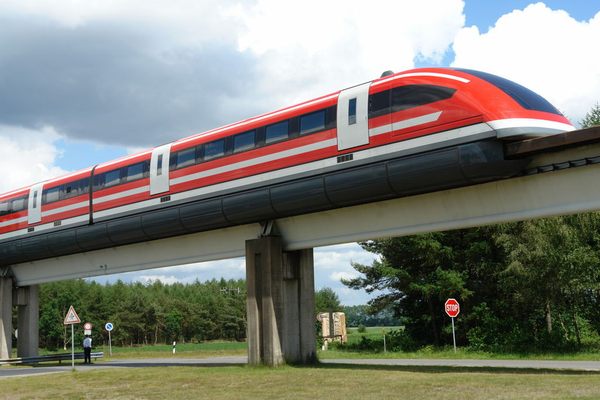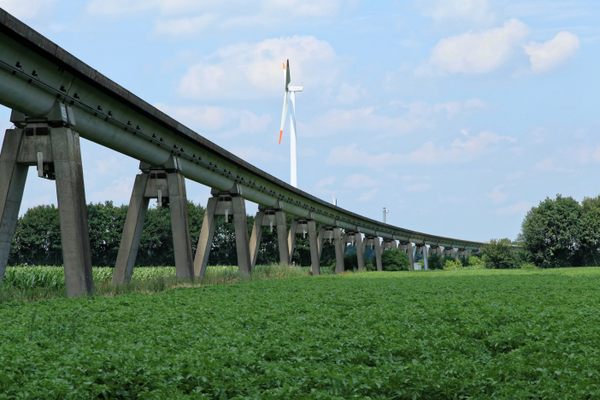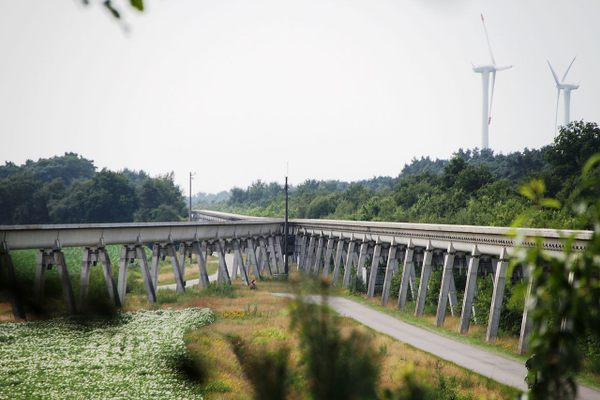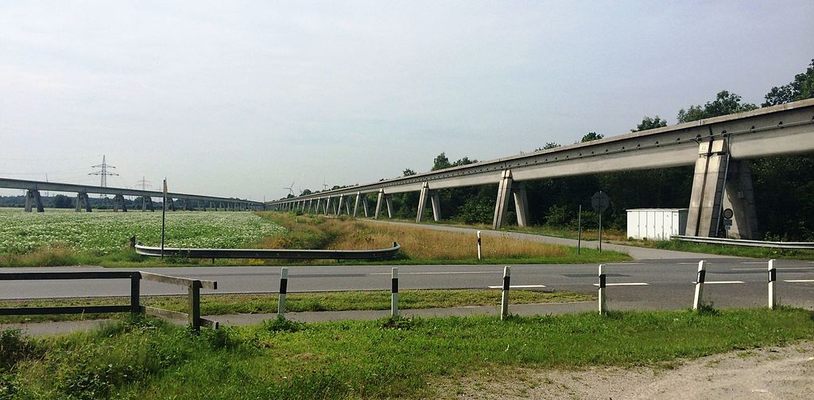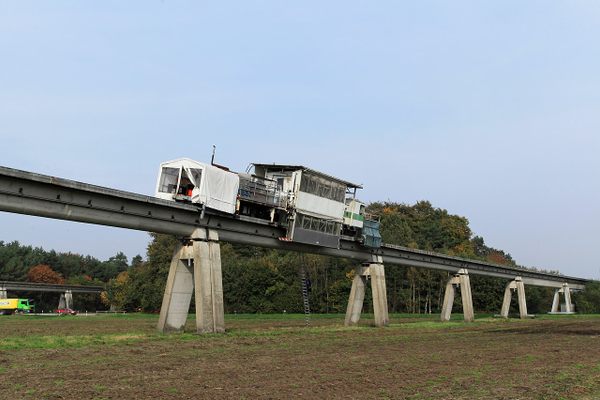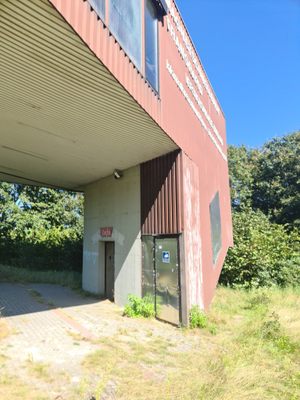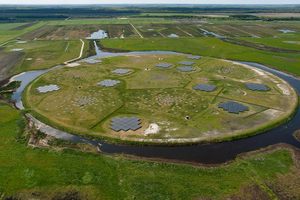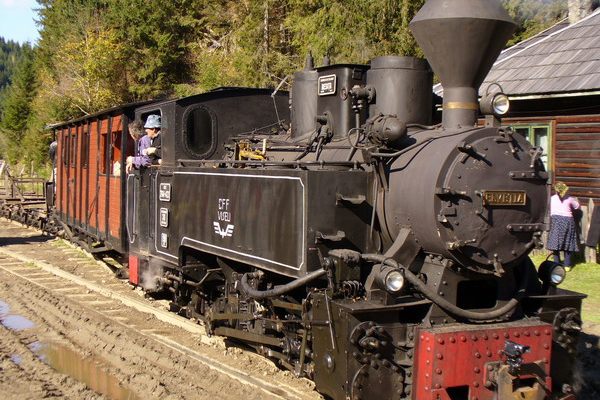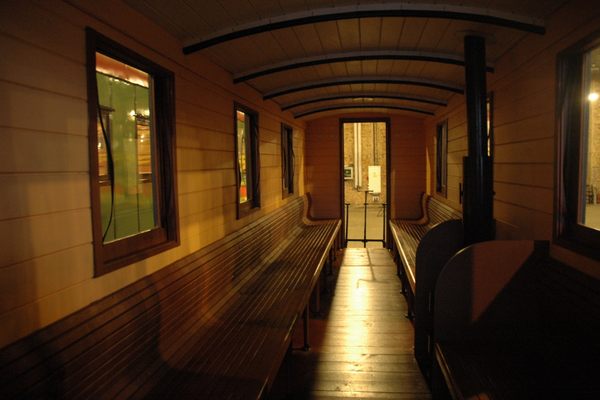About
In the late 1960s, Germany began developing high-speed monorail train that used magnetic levitation, or maglev. In June 1980 construction started on this national maglev test center in northwestern Germany near Lathen. The first Maglev train (Transrapid 06) made its first journey on the partially completed track in 1983.
By December 1987, the entire test track with a length of 31.8 kilometers was completed. It consisted of a 12-kilometer single track running in north-to-south direction, with a 1,690-meter loop at the northern end and and a 1,000-meter loop at the southern end. The maintenance facility and the station of the train is on the straight section.
Regular testing of maglev trains started in 1988 and in June 1993 "Transrapid 07" reached a velocity of 450 kilometers per hour, which was the highest speed ever achieved on the track. In those days, trips for tourists with maglev trains were popular. Nevertheless none of the proposed maglev lines in Germany were realized.
Then on September 22, 2006 the maglev train collided with a workshop car. In the accident, 23 people were killed and 10 injured. After this accident all maglev tests were cancelled until 2008 and tours for tourists were discontinued. As no applications of the system were planned, it was decided to shut down the test track.
Originally, the Emsland testing facility was set to be demolished in 2012. More recently, researchers have proposed reactivating the route to study and further develop Hyperloop technology.
The visitors center at the Northern loop is closed, doors bolted. From a distance you can see a large model of a Transrapid still inside the room. The visitors center at Lathen is only opened for visitors in the the weekends.
Related Tags
Community Contributors
Added By
Published
May 6, 2021
